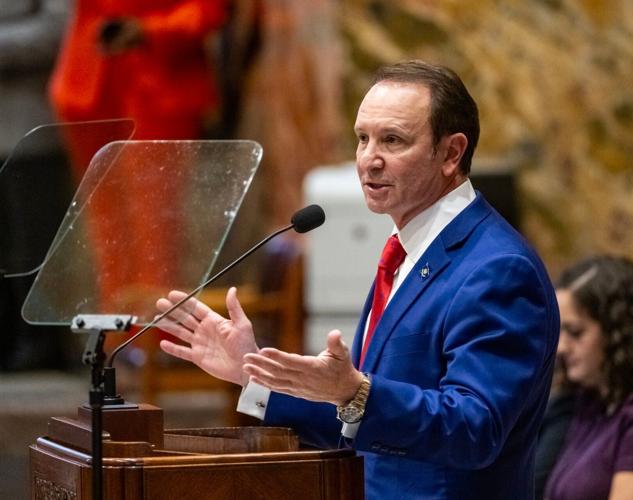As I watched the Louisiana Legislature's two special sessions — the first on redistricting, the second on crime — I grew increasingly concerned about what lawmakers might approve during the regular session.
In addition to redistricting, the first special session also saw Republican party leaders push a bill to scratch the state's popular open primary election system in favor of "closed" party primaries. A watered-down version passed, and a renewed effort to impose closed primaries is pending in the current session.
The second special session saw Republicans play to their base by adopting a slew of "tough-on-crime" laws, despite a significant drop in crime, particularly in New Orleans.
The rightward turn continues with bills to gut public sector unions, reduce worker compensation benefits, and even cut meal breaks for young workers and overall employee safety.��
The goal is clear: Give businesses more flexibility and fewer restrictions to encourage them to locate or expand in Louisiana.
Seems we'll find out.

Upton Sinclair, author of "The Jungle," in a 1962 photograph.
Just thinking about it made me pick up a copy of Upton Sinclair's "The Jungle," a classic novel about horrific conditions in early 20th-century Chicago's meatpacking industry.
Do we want our state to be known for putting business profits ahead of employees' welfare?
Reporter James Finn of this newspaper summarized the legislative push this way: "A cluster of at least 15 proposed laws takes aim at public-sector unions’ ability to bargain with employers, the system for compensating workers sidelined by injury and a requirement that child laborers must receive lunch breaks. Others would cut unemployment benefits and limit how much doctors can make when treating people for workers' compensation claims."
Consider by state Rep. Roger Wilder III, R-Denham Springs, and by state Sen. Alan Seabaugh, R-Shreveport. Both aim to repeal a law requiring employers to give a 30-minute lunch break to teens who work shifts of five hours or more. Think about that the next time you pull into a fast-food spot and a young person is taking your order or fixing your meal.��
�¾��ٳ���, state Rep. Raymond Crews, R-Bossier City, wants to further restrict union activities. Louisiana is already one of many "right-to-work" states, where joining a union isn't required to be employed. But, Louisiana still has more than 300 active unions.��
Private companies can't be required to have union employees, but some government agencies, departments, municipalities and parishes have public employee unions. Crews' bill would prohibit the state or any "parish, city, town, or governmental body from recognizing any labor union or other employee association" as a bargaining agent of public officers or employees.
. .��
Unions typically focus on things all workers care about: working conditions, required work hours, breaks and snack or meal times, health care and other benefits. In "The Jungle," workers had unsanitary, unsafe conditions and had to work overtime without additional pay.
No one wants to work for an employer who treats employees like the companies portrayed in Sinclair's novel. Employees can choose to work for a non-union company or look for workplaces with union protections.��
Fortunately, some companies and governments care enough about their employees to provide conditions that other workplaces offer only via collective bargaining. Other companies complain that their profit margins cannot take the hit if employees demand and receive higher wages and better benefits.
If all or most of the anti-union measures pass, the governor almost certainly will sign them. Once enacted, workers of all political persuasions — including many who voted for Gov. Jeff Landry — will learn the cost of not paying close attention at election time.
Unless people look past partisan politics and watch what's going on in government, unless they read up on pending legislation and speak up, we may find ourselves living — and working — in an era that may thought had long passed.
"The Jungle" was published in 1906 and focused on the dangers meat workers faced. Republican President Teddy Roosevelt rose to Sinclair's challenge, leading to the nation signing the Meat Inspection Act and creating the Food and Drug Administration.
The tale ends with The Man, The System still in charge but aware that workers were neither meek nor helpless. The workers chanted with hope, "Chicago will be ours! Chicago will be ours!"
If all or most of the anti-union bills become law, a lot of workers have cause to be afraid. Very afraid.
Will Louisiana be ours?

























